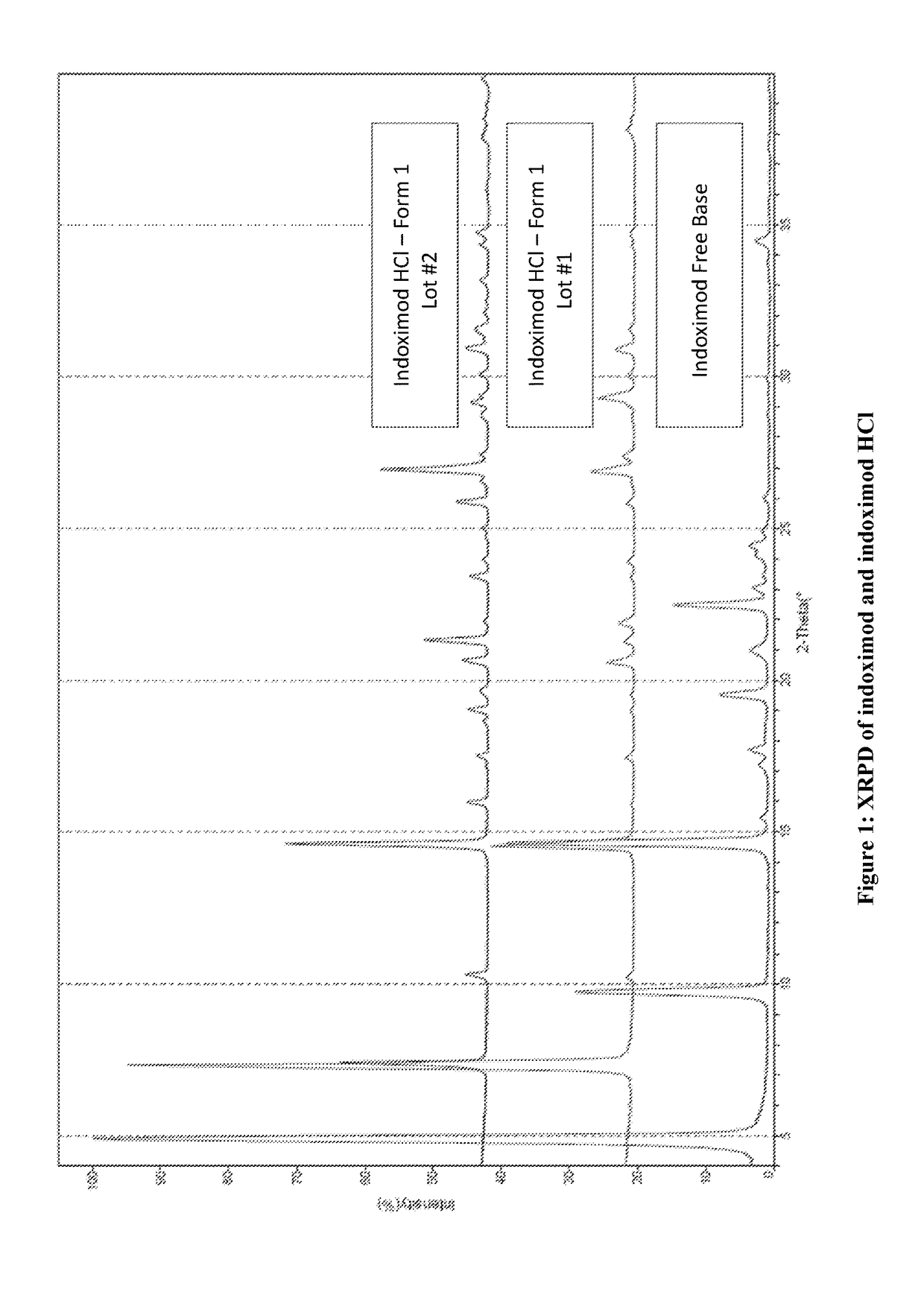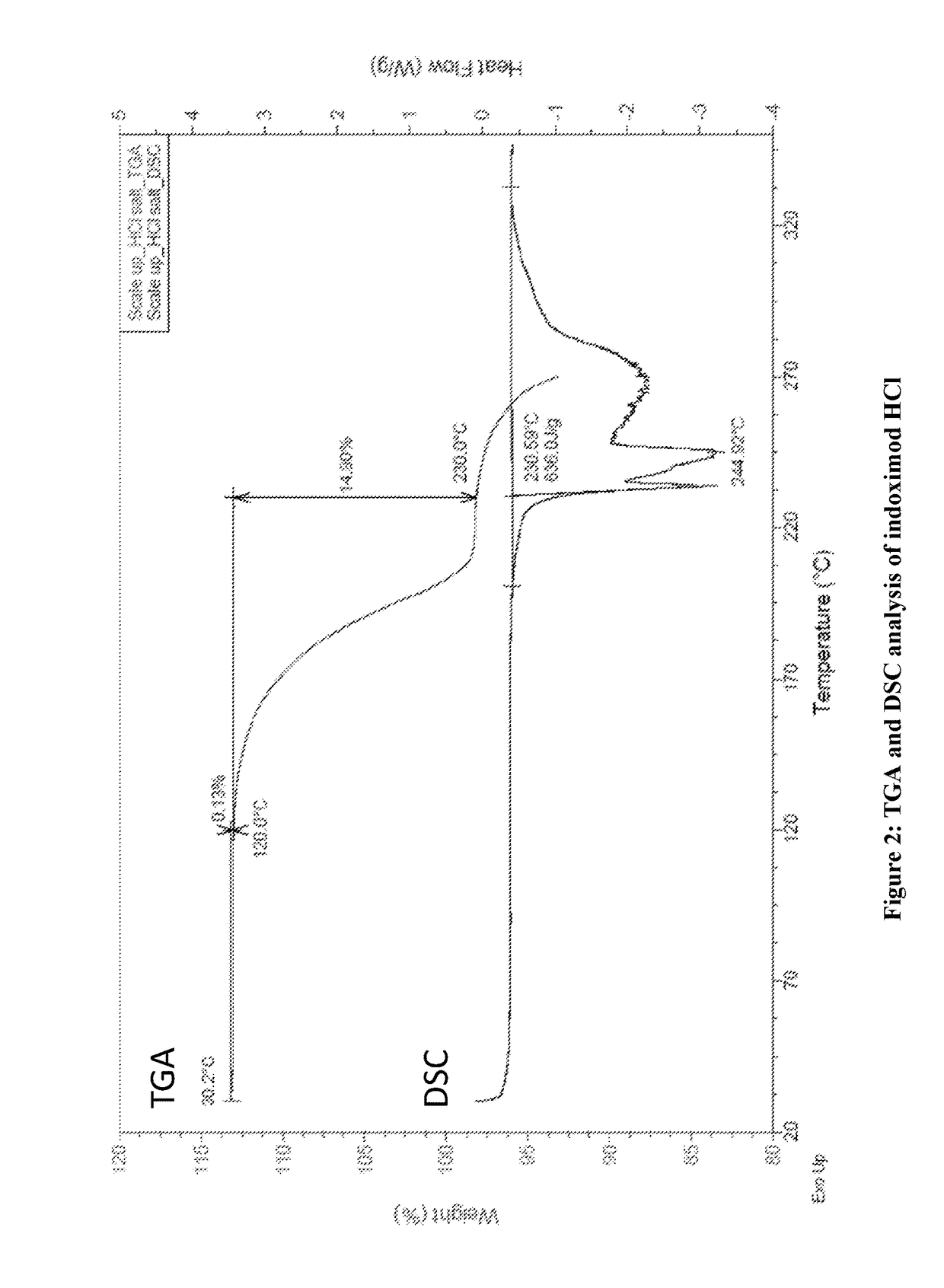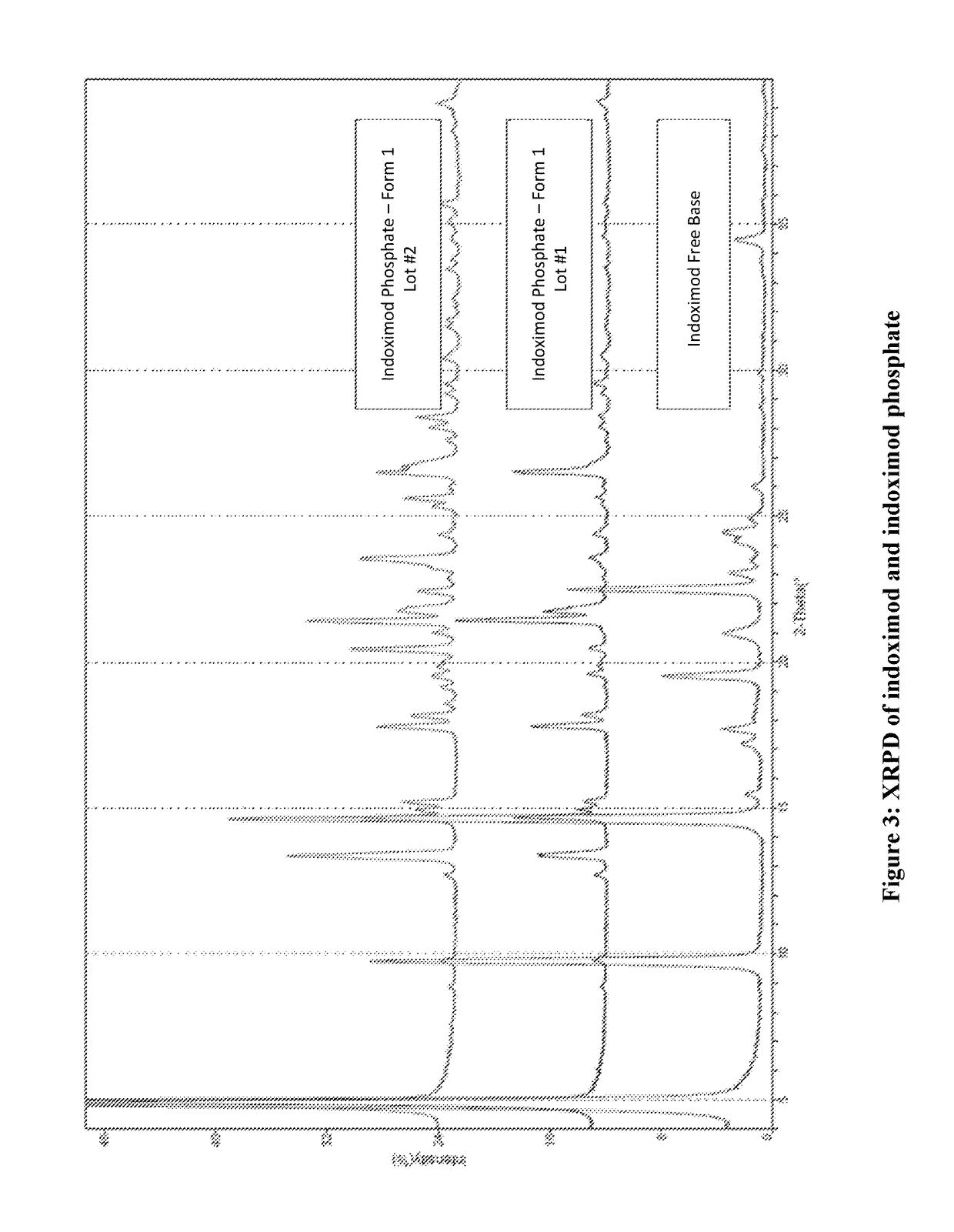Salts and prodrugs of 1-methyl-D-tryptophan
a technology of methyl-d-tryptophan and prodrugs, which is applied in the direction of drug compositions, peptides, immunological disorders, etc., can solve the problems of limiting it is unlikely to be solved, and achieves excellent safety profiles, favorable pharmacokinetic profile, and limit the therapeutic activity of this investigational drug
- Summary
- Abstract
- Description
- Claims
- Application Information
AI Technical Summary
Benefits of technology
Problems solved by technology
Method used
Image
Examples
example 1
and Methods of Synthesis
[0257]All reagents and solvents were purchased from commercial sources. All commercial reagents and solvents were used as received without further purification. The reactions were monitored using analytical thin layer chromatography (TLC) with 0.25 mm EM Science silica gel plates (60E-254). The developed TLC plates were visualized by short wave UV light (254 nm) or immersion in potassium permanganate solution followed by heating on a hot plate. Flash chromatography was performed with Selecto Scientific silica gel, 32-63 μm particle sizes. All reactions were performed in flame or oven-dried glassware under a nitrogen atmosphere. All reactions were stirred magnetically at ambient temperature unless otherwise indicated. 1H NMR spectra were obtained with a Bruker DRX400, Varian VXR400 or VXR300. 1H NMR spectra were reported in parts per million (δ) relative to TMS (0.0), DMSO-d6 (2.50) or CD3OD (4.80) as an internal reference. All 1H NMR spectra were taken in CDC...
example 2
ization of Solid Form of Indoximod Free Base
[0320]D-1MT (HPLC purity 99.6%) free base is a white powder and it displays birefringence, needle shape and crystalline appearance under the polarized light microscope (PLM) and by X-ray powder dispersion spectroscopy (XRPD) (FIG. 1). It only shows single melt endothermic peak with onset at 293.8° C. by thermogravimetric analysis (TGA) and differential scanning calorimetry (DSC) and ˜0.01% weight loss from 30-200° C., indicating that is an anhydrate form. This crystalline form is non-hygroscopic (0.09% weight gain from 0-80% RH), and does not show changes after dynamic vapor sorption method (DVS). Furthermore, stability studies of the solid powder form indicate that D-1MT is chemically stable at the tested conditions (25° C. / 60% RH, 40° C., 40° C. / 75% RH, 60° C. and 70° C.) for 4 weeks. Additionally, it is also stable in solution in 0.1 N HCl, and 50 mM phosphate buffers pH 2-8 at 25° C. for 24 hours, while it shows minor degradation (0.45...
example 3
ization of Indoximod Free Base Solubility
[0321]The solubility of indoximod as free base in buffered or un-buffered solutions, as well as in simulated biological fluids (SGF, FaSSIF or FeSSIF) is shown in FIG. 5 (open symbols). Solubility of indoximod in aqueous solutions of pH 2-8 is 1.8-2.0 mg / mL, with higher solubility at pH10. This low solubility at neutral pH range is likely due to the high molecular packing energy of indoximod in the crystal, which is reflected by the very high melting point of 293.8° C. This low solubility of indoximod in the pH range corresponding to intestinal pH may in part explain the limiting dose absorption at doses higher than 800 mg in humans. Therefore, we studied whether salts or sprayed dry dispersions of indoximod could increase solubility and exposure after oral dosing.
Example 4: Characterization of Indoximod Salts and their Solubility
[0322]Several salts of indoximod were manufactured and their physicochemical properties were evaluated (Table 2). ...
PUM
| Property | Measurement | Unit |
|---|---|---|
| particle sizes | aaaaa | aaaaa |
| temperature | aaaaa | aaaaa |
| RH | aaaaa | aaaaa |
Abstract
Description
Claims
Application Information
 Login to View More
Login to View More - R&D
- Intellectual Property
- Life Sciences
- Materials
- Tech Scout
- Unparalleled Data Quality
- Higher Quality Content
- 60% Fewer Hallucinations
Browse by: Latest US Patents, China's latest patents, Technical Efficacy Thesaurus, Application Domain, Technology Topic, Popular Technical Reports.
© 2025 PatSnap. All rights reserved.Legal|Privacy policy|Modern Slavery Act Transparency Statement|Sitemap|About US| Contact US: help@patsnap.com



